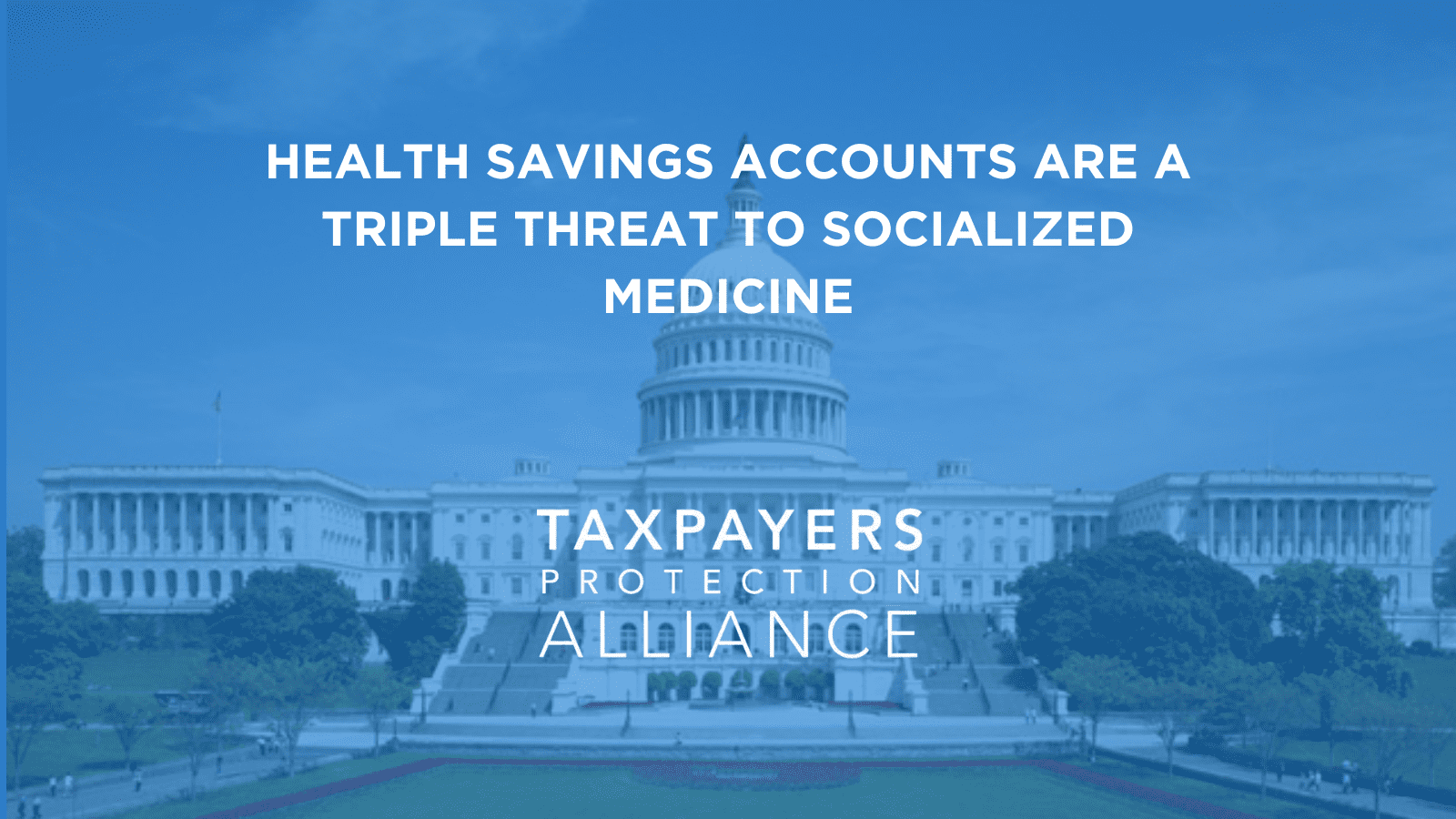
Health Savings Accounts are a Triple Threat to Socialized Medicine
Christina Smith
June 18, 2025
Since their creation in 2003, Health Savings Accounts (HSAs) have provided healthcare patients with increased choice and flexibility and kept spending under control. While (very) far from perfect, the House-passed version of the One Big Beautiful Bill Act (OBBBA) expands on this progress by including provisions that would expand the eligibility and flexibility of HSAs. HSAs offer a “triple tax advantage” by allowing pre-tax contributions for individuals and families with high-deductible health plans (HDHPs), tax-free investment growth, and tax-free withdrawals when used for qualified medical expenses. HSAs are an excellent savings tool that enable Americans to save for health-related expenses throughout their lives. HSAs can be invested and allow compound interest to work its magic, creating a healthcare nest egg for hardworking Americans.
Today, 72 million Americans are covered by an HSA. The HSA provisions in the bill would expand access to 20 million more Americans. The proposed changes to HSAs in the OBBBA include increased contribution limits based on income. In 2025, annual HSA contribution limits are $4,300 for individuals and $8,550 for families. The proposed changes would allow individuals who earn less than $75,000 per year to contribute an additional $4,300 and families who earn less than $150,000 annually to contribute an additional $8,550.
Currently, individuals are not allowed to have a direct primary care (DPC) membership coupled with an HSA. Provisions in the OBBBA would enable individuals to maintain HSA eligibility if they have a DPC membership. Additionally, the bill would allow patients to use HSA funds to pay for DPC services. DPC agreements offer patients higher-quality care and cost savings. This innovative system is an alternative to traditional third-party insurance options and offers lower costs for similar or better coverage. A solution to reducing the burden of health care costs is to allow DPC to be coupled with a catastrophic health insurance plan and a health savings account. DPC reduces medical expenses, and DPC patients are 52 percent less likely to use services at an expensive hospital than at a traditional private practice.
Provisions in the bill would also allow Medicare patients to be eligible for an HSA. The change would allow anyone with an HDHP to continue making contributions to an HSA after enrolling in Medicare Part A, thereby enabling them to continue saving during retirement. The bill would also expand HSA access to beneficiaries of bronze or catastrophic plans under the Affordable Care Act (ACA), making more individuals eligible for HSAs.
Finally, the bill would broaden the definition of an HSA-eligible expense to include certain fitness memberships and instructional physical activity, and allow some expenses incurred before an HSA is established to be eligible for reimbursement.
The provisions in the bill to expand HSAs are a significant first step toward healthcare freedom. But expanding HSAs to all Americans, rather than piecemeal expansions, would further empower individuals to manage their healthcare expenses and make informed decisions, fostering greater financial independence and reducing reliance on government programs. This broader approach would incentivize preventative care and savings, particularly benefiting younger Americans just starting out in their careers. Regardless of age, patients deserve a system that promotes healthy living, avoids red tape and government intrusion, and keeps costs low.
